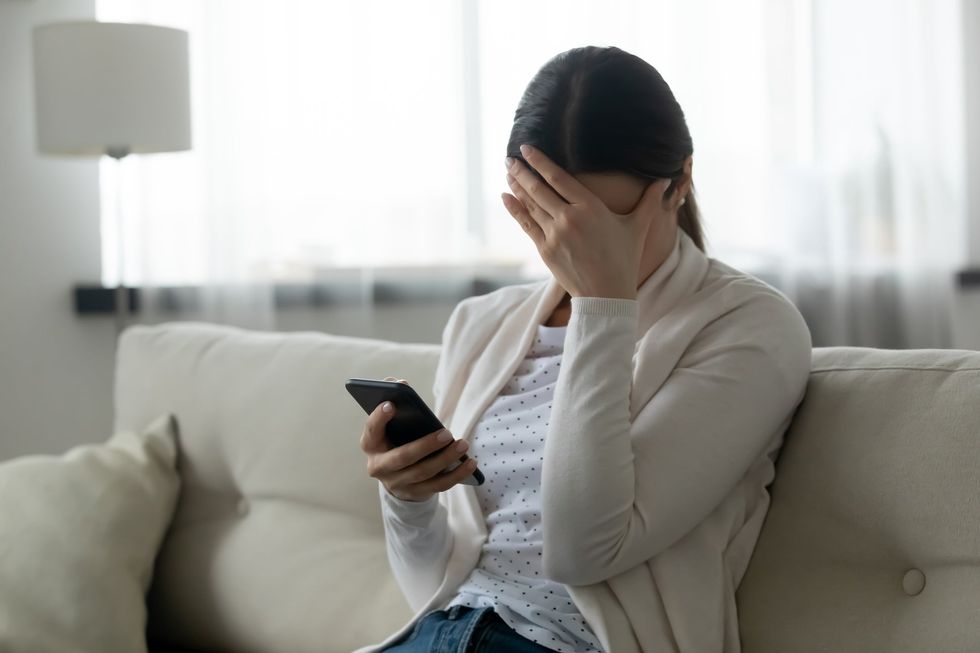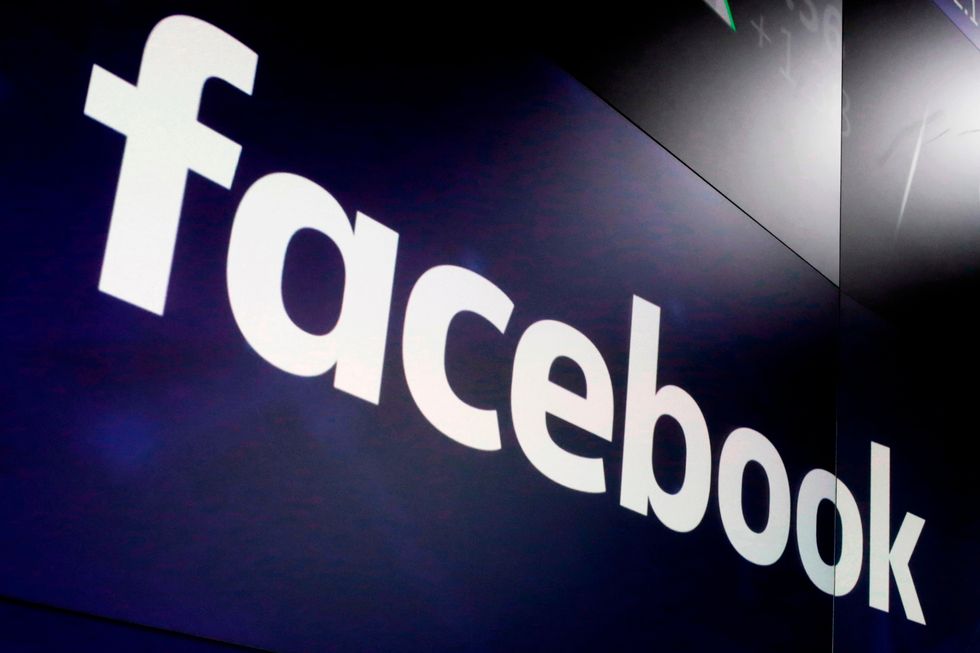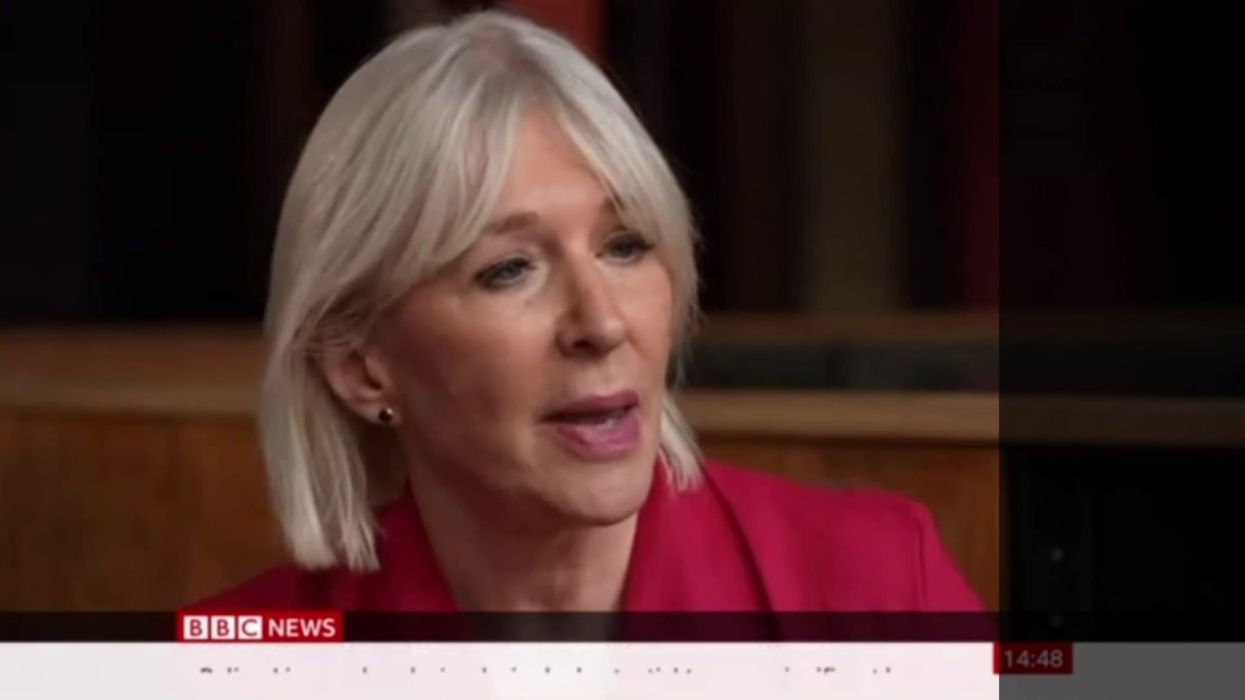Nadine Dorries says social media platforms have been ‘hijacked’ by left-wingers
BBC News
The government has announced it is going to introduce the long-awaited Online Safety Bill to parliament on Thursday, after previously promising to do so by the end of last year.
Following the killing of Sir David Amess, Labour leader Keir Starmer urged the PM to work collaboratively in clamping down on web-based extremism and to push the second reading of the bill forward to before the end of 2021.
If passed, the bill will radically change the regulation of content posted on social media. So what does it involve?
When did the online harms bill originate and why?
The bill, also known as the online harms bill was first mooted in 2019 while Theresa May (remember her?) was the Prime Minister, to put pressure on social media companies to follow good practice.
Two years passed and the draft bill was published in May 2021.
What measures does the bill suggest?

A broad and hefty piece of policy, the bill seeks to protect people from a number of online harms.
It wishes to shield children from a number of potential dangers online including grooming, revenge porn, people smuggling, sexual exploitation, sale of drugs and weapons, hate speech and hate crime, cyberflashing, fraud, hoax calls, epilepsy trolling, images of child abuse and posts relating to suicide and eating disorders.
Meanwhile, it also seeks to tackle terrorism, disinformation, racist abuse, both to stop the spread of hateful content and to stop content that could radicalise viewers.
It places age restrictions on pornography and places a duty on social media sites and search engines to "stamp out" online scams like “romance fraud” - that’s catfishing to you or I - and other material that is legal but considered harmful.
Technology companies will also be required to protect their users’ rights to freedom of expression and privacy.
Legal but harmful “activity can range from online bullying and abuse, to advocacy of self-harm, to spreading disinformation and misinformation,” the government explained in a note accompanying the draft.
“Whilst this behaviour may fall short of amounting to a criminal offence, it can have corrosive and damaging effects, creating toxic online environments and negatively impacting users’ ability to express themselves online.”
What will happen to companies that break the rules?

Ofcom was suggested as the regulator that would apply the standards that huge companies like Facebook would follow and they will be asked to make codes for companies to comply to. Companies themselves will also have to set out the work they are doing to comply with the guidance in their terms and conditions and users will also be able to appeal to Ofcom.
If passed, Ofcom will be able to issue fines of up to £18m or 10 per cent of global turnover, whichever is higher, if firms fail to comply with the new rules.
The regulator will also be able to request information from companies – if executives do not comply they could face up to two years in prison.
It will also have the power to block access to sites in the UK, the government said.
What else could it involve?
Others, including the late Amess, called for its expansion to stop anonymity online. Mark Francois said the bill should be “toughened up”.
“While people in public life must remain open to legitimate criticism, they can no longer be vilified or their families subject to the most horrendous abuse, especially from people who hide behind a cloak of anonymity with the connivance of the social media companies for profit”.
What do people make of it?
Some people welcomed it and have continued to argue it will help online abuse in a number of ways.
Dame Melanie Dawes, Ofcom Chief Executive, said: "Today marks an important step towards creating a safer life online for the UK’s children and adults.
"Our research shows the need for rules that protect users from serious harm, but which also value the great things about being online, including freedom of expression. We’re looking forward to starting the job."
But while the bill contains provisions to protect free speech and political expression, including by ensuring content is analysed within its context, some campaigners have criticised it.
Jim Killock, Open Rights Group executive director said: "The fact that the bill keeps changing its content after four years of debate should tell everyone that it is a mess, and likely to be a bitter disappointment in practice."
Others have similar views:
Charity Carnegie Trust warned in September: "The draft Online Safety Bill gives too many powers to the Secretary of State over too many things.
"This is a rare point of unity between safety campaigners, who want tough legislation to address hate crime, mis/dis-information and online abuse and radical free speech campaigners who oppose much of the Bill."
Another point of contention is its rules for journalists. Content published by publications is exempt from the bill but some say the bill sets a precedent meaning journalistic content will be next, while others say journalists’ content should be examined for creating harm.
Have your say in our news democracy. Click the upvote icon at the top of the page to help raise this article through the indy100 rankings.
Top 100
The Conversation (0)














